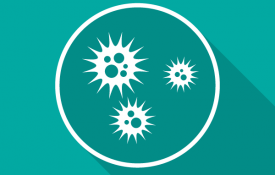-
How To Design Your Interview Based on Behavioral Science
As the blind dates of business, job interviews are a dance between organizations that hope to hire the best person for the job and applicants hoping to find the best job for themselves. For business leaders searching for the right candidates, they have full control of the interview environment and can (read: should) design their hiring processes to be inclusive and eliminate bias. But for applicants hoping to shine within systems they have little control over, it may seem like there are few strategies they can use to get ahead. Fortunately, the behavioral sciences have some advice for your next job interview (and it’s not to work on your power pose).
-

NIH Encourages Studying the Social Contagion of Substance Abuse
The National Institute on Drug Abuse (NIDA) has issued a Notice of Special Interest inviting grant applications proposing to study the social contagion of behavior and substance abuse.
-
Ricky Gervais teaches Hollywood what speaking truth to power really means
If you had “host Ricky Gervais becomes a conservative darling” in your office Golden Globes pool, congratulations, because you must have won a bundle. The rest of us will continue our slow, astonished blink as we contemplate the fact that this year’s most talked-about speech slammed not oil companies or gender inequality, but Hollywood hypocrisy: “You say you’re woke,” said Gervais, “but the companies you work for — I mean, unbelievable: Apple, Amazon, Disney. If ISIS started a streaming service, you’d call your agent, wouldn’t you? ... There are certainly famous people who have taken genuinely brave stands for social justice...
-
The Montessori Schools Embracing Kid-Tracking Devices
Schools spend billions of dollars on technology with promises of personalized learning and building 21st-century skills. Wildflower Schools, a network of small, teacher-led Montessori schools founded in 2014, has a more radical idea: use sensors to track kids’ every movement—where they go, what they work with, who they interact with, and how long they engage with materials in the classroom. It may sound creepy, and perhaps something that might make Maria Montessori roll over in her grave. But its backers say it’s an effort to make Montessori, an educational philosophy with passionate global backing, even more Montessori. ...
-
How to avoid the traps that produce loneliness and isolation
“Hell is other people,” wrote the French existentialist Jean-Paul Sartre in his 1944 play “No Exit.” Sartre was wrong. Hell is the lack of other people, and according to the health-insurance company Cigna, loneliness and social isolation are rampant in the United States today. About half of Americans report sometimes or always feeling alone, Cigna found in a 2018 study of more than 20,000 U.S. adults. Barely more than half say they have meaningful daily in-person social interactions. … You might ask why there is a sudden research interest in this topic. The answer: Researchers are discovering that loneliness harms both mental and physical health.
-
Happy People Don’t Ignore The World’s Problems, They Act To Solve Them
A team of psychologists led by Kostadin Kushlev of Georgetown University examined the idea that individual happiness may act as an impediment to solving the world’s problems. “As nations across the globe become more interested in human happiness, some have expressed concerns about the downsides of being happier,” state Kushlev and his team of collaborators. “What if in our rush to make everyone happy, people became complacent about the plight of their local communities, society, and the world?” The data, however, do not support this line of reasoning.

